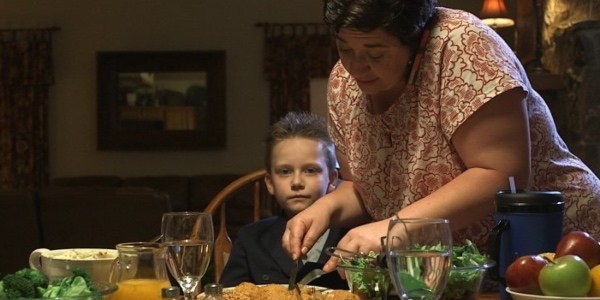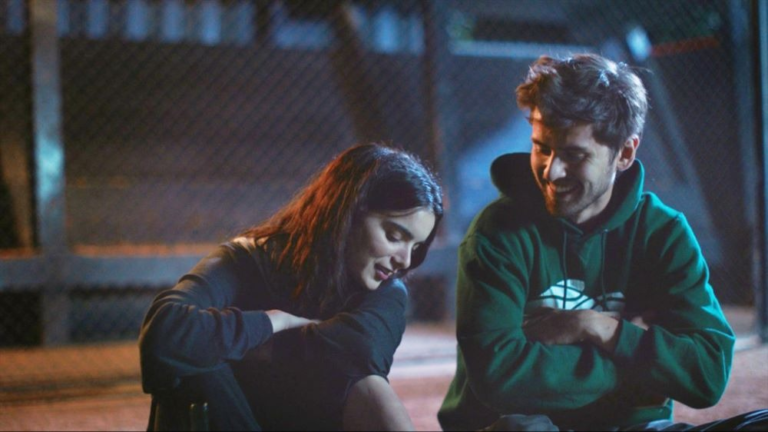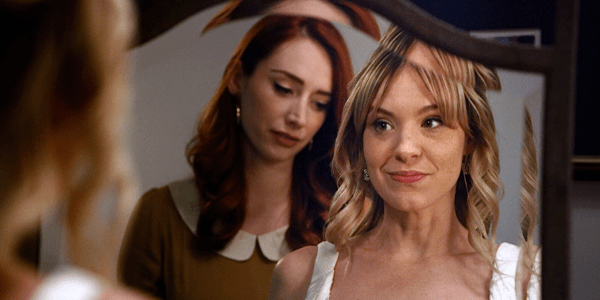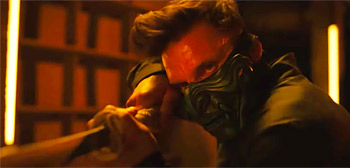‘Scott Pilgrim Takes Off’ Is a Winning Remix With Surprises Up Its Sleeve
A familiar voice cast returns for this bold, heartfelt, self-referential new take on a much-loved story.
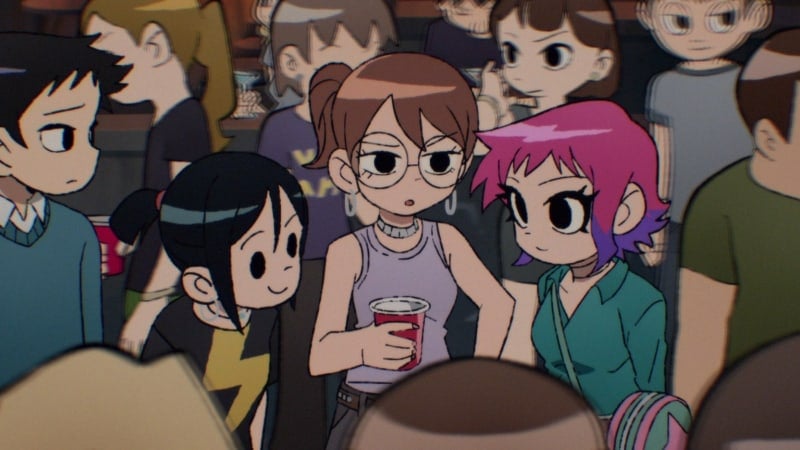
Reboot, remake, revival, reimagining, legacy sequel: there are a half-dozen names for the surprising second comings of beloved and mediocre franchises alike, but none of them describe the precise alchemy of Scott Pilgrim Takes Off. The new Netflix animated series acts as a brilliant bait-and-switch, one that starts as a straight-faced anime version of Bryan Lee O’Malley’s comics and Edgar Wright’s film (O’Malley co-created the show with BenDavid Grabinski) before subverting fans’ expectations in the best way possible. It’s an inspired remix of an already-great story, one that rewards longtime fans while remaining as offbeat and funny as ever for casual viewers.
To speak in depth about the delightful changes Scott Pilgrim Takes Off makes to its source material would be to ruin some of its magic; indeed, part of the joy of the show comes from seeing it start to careen off-course after setting itself up (for all of 20 minutes) as a modestly faithful adaptation of the popular aughts comic series. O’Malley and Grabinski take a deeply self-referential approach to the material, one that opens up the story in sweet and insightful new ways. The meta angle might seem like an inside joke that’s run long if you’re not familiar with the Scott Pilgrim series, but the story of Toronto teen bassist Scott battling the evil exes of his new girlfriend Ramona has always been deeply weird and self-aware.
The quick eight-episode series uses the framework of the Scott Pilgrim story – a new relationship hindered by past baggage, video game-style fights against evil exes – and rebuilds it from a different angle, focusing on characters and aspects of the story that were underdeveloped during the first go-round. The show has plenty of elements worth loving, but its greatest strength is its writing, which may be better described as rewriting. O’Malley enthusiastically takes an eraser to his own work, treating the comic series he spent years making as a rough draft or a living document rather than an untouchable story bible. It’s a laugh in the face of the tired idea that stories should always remain the same when jumping from medium to medium, and an impressively well-executed one at that.
If you’re a Scott Pilgrim fan who can’t hang with the new version, that might be what the kids these days call a skill issue. Aside from its welcome, thoughtful, and often hilarious reframing of the original Scott Pilgrim story (there’s a joke about straight actors playing gay from Kieran Culkin’s Wallace that I still haven’t stopped laughing about), the show also benefits from a killer voice cast and expressive, pitch-perfect animation. Shockingly, pretty much the entire star-studded cast of Wright’s 2010 film adaptation returns for the show, including Michael Cera, Mary Elizabeth Winstead, Chris Evans, Jason Schwartzman, Brie Larson, Aubrey Plaza, Anna Kendrick, and more. While there’s certainly something to be said about allowing anime actors to voice anime shows (a criticism that appeared ahead of the series’ release), the show comments on its live-action counterpart in a way that benefits from the original cast’s return.
Plus, this ensemble is still incredibly funny. While some of the actors don’t really sound like teens anymore, they still fall back into the world of Scott Pilgrim with ease. Cera and Kulkin, in particular, have a knack for nailing line deliveries in the most endearingly wacky ways, while Winstead imbues Ramona’s journey with an appropriate sense of gravity. Scott Pilgrim Takes Off winkingly pokes fun at many of the same topics as the original – Brandon Routh’s Todd still has vegan superpowers, and there’s still a bit about the shocking realization that “bread makes you fat” – but it also expands its world greatly, resulting in comedic detours that are often enjoyable and occasionally chaotic.
This world has always had a peculiar, frenetic short attention span, a sort of all-over-the-place-ness that’s both endearing and dizzying, and that continues here. As timelines and realities converge and layers of self-reference expand outward (there’s not just a movie about Scott’s life being made within the show, but also an off-Broadway musical), it can be tough to grasp every character beat and joke on first watch. As a fan of Wright’s film and casual reader of the books, I was able to grasp what was going on, but I wonder if newer fans might feel like they’ve missed something as the show races forward.
There’s still plenty to cling to here, though, from the kooky performances to the vibrant Japanese animation from Science Saru, to the stellar rock soundtrack. The show also operates at a brisk clip, doing more for some of its most underrated characters in less than four hours than the comic book run did in six volumes. Scott Pilgrim’s approach to change is perhaps best signified by a scene that comes up repeatedly in the new series, in which Ramona Flowers carefully, lovingly dyes her hair a new color, wiping off a foggy mirror to look her reflection dead in the eye. With Scott Pilgrim Takes Off, O’Malley gives his own opus a good hard look, and changes it with a sure hand and an even surer heart. The result is a win for everyone.
Related Topics: Netflix, scott pilgrim



